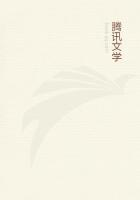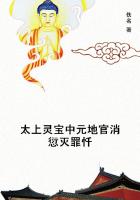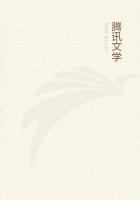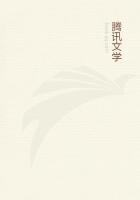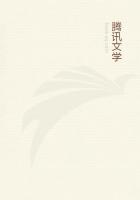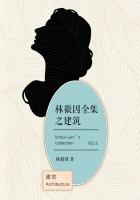Physicians who pretended to infallibility in detecting even the minutest departure from their prescriptions were laughed at; and finally, there were precise by-laws to regulate the personal behaviour of the physician. He was enjoined to observe the most scrupulous cleanliness, and was advised to cultivate an elegance removed from all signs of luxury, even down to the detail that he might use perfumes,but not in an immoderate degree."[22] But the high-water mark of professional morality is reached in the famous Hippocratic oath,which Gomperz calls "a monument of the highest rank in the history of civilization." It is of small matter whether this is of Hippocratic date or not, or whether it has in it Egyptian or Indian elements: its importance lies in the accuracy with which it represents the Greek spirit. For twenty-five centuries it has been the "credo" of the profession, and in many universities it is still the formula with which men are admitted to the doctorate.
[21] Oxford. Clarendon Press, 2d ed., 1911.
[22] Gomperz: Greek Thinkers, Vol. I, p. 281.
I swear by Apollo the physician and AEsculapius and Health (Hygieia) and All-Heal (Panacea) and all the gods and goddesses, that, according to my ability and judgment, I will keep this oath and this stipulation--to reckon him who taught me this art equally dear to me as my parents, to share my substance with him, and relieve his necessities if required; to look upon his offspring in the same footing as my own brothers, and to teach them this art,if they shall wish to learn it, without fee or stipulation; and that by precept,lecture, and every other mode of instruction, I will impart a knowledge of my art to my own sons, and those of my teachers, and to disciples bound by a stipulation and oath according to the law of medicine, but to none others. I will follow that system of regimen which, according to my ability and judgement,I consider for the benefit of my patients, and abstain from whatever is deleterious and mischievous.
I will give no deadly medicine to anyone if asked, nor suggest any such counsel; and in like manner I will not give to a woman a pessary to produce abortion.
With purity and with holiness I will pass my life and practice my art.
[I will not cut persons labouring under the stone, but will leave this to be done by men who are practitioners of this work.]
Into whatsoever houses I enter, I will go into them for the benefit of the sick, and will abstain from every voluntary act of mischief and corruption, and,further, from the abduction of females or males, of freemen and slaves. Whatever, in connection with my professional practice, or not in connection with it,I see or hear, in the life of men, which ought not to be spoken of abroad, I will not divulge, as reckoning that all such should be kept secret.
While I continue to keep this Oath unviolated, may it be granted to me to enjoy life and the practice of the art, respected by all men, in all times! But should I trespass and violate this Oath, may the reverse be my lot! (Adams, II, 779, cf. Littre, IV, 628.)
In his ideal republic, Plato put the physician low enough, in the last stratum, indeed, but he has never been more honorably placed than in the picture of Athenian society given by this author in the "Symposium." Here the physician is shown as a cultivated gentleman, mixing in the best, if not always the most sober, society. Eryximachus, the son of Acumenus, himself a physician, plays in this famous scene a typical Greek part[22a]--a strong advocate of temperance in mind and body, deprecating, as a physician, excess in drink, he urged that conversation should be the order of the day and he had the honor of naming the subject--"Praise of the God of Love." Incidentally Eryximachus gives his view of the nature of disease, and shows how deeply he was influenced by the views of Empedocles:". . . so too in the body the good and healthy elements are to be indulged, and the bad elements and the elements of disease are not to be indulged, but discouraged. And this is what the physician has to do, and in this the art of medicine consists: for medicine may be regarded generally as the knowledge of the loves and desires of the body and how to satisfy them or not; and the best physician is he who is able to separate fair love from foul, or to convert one into the other; and he who knows how to eradicate and how to implant love, whichever is required, and can reconcile the most hostile elements in the constitution and make them loving friends, is a skilful practitioner."
[22a] Professor Gildersleeve's view of Eryximachus is less favorable (Johns Hopkins University Circular, Baltimore, January, 1887). Plato, III, 186--Jowett, I, 556.
The second great note in Greek medicine illustrates the directness with which they went to the very heart of the matter.
Out of mysticism, superstition and religious ritual the Greek went directly to nature and was the first to grasp the conception of medicine as an art based on accurate observation, and an integral part of the science of man. What could be more striking than the phrase in "The Law," "There are, in effect, two things, to know and to believe one knows; to know is science; to believe one knows is ignorance"?[23] But no single phrase in the writings can compare for directness with the famous aphorism which has gone into the literature of all lands: "Life is short and Art is long; the Occasion fleeting, Experience fallacious, and Judgment difficult."
[23] Littre: OEuvres d'Hippocrate, Vol. IV, pp. 641-642.
Everywhere one finds a strong, clear common sense, which refuses to be entangled either in theological or philosophical speculations. What Socrates did for philosophy Hippocrates may be said to have done for medicine. As Socrates devoted himself to ethics, and the application of right thinking to good conduct, so Hippocrates insisted upon the practical nature of the art, and in placing its highest good in the benefit of the patient.

